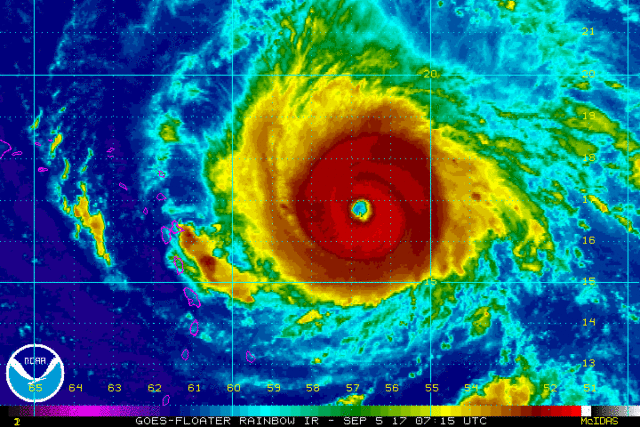
Get Out of Harm’s Way

As I write this there is a category five hurricane on a beeline towards my home. This is the home that I just bought, tore down to the studs, and put the finishing touches on only months ago. The vision running through my head is seeing the waterlogged remnants of all my stuff: the brand new furniture, the electronics, the collection of signed guitars and albums. I am visualizing the look on my wife’s face after all the work she put in to completing the project after we fired the contractor. I am seeing the response from my children as they witness the destruction of their rooms.
Helplessness
There is a helpless feeling that comes with the contemplation of a natural disaster. With all of our developments, we remain powerless when it comes to controlling mother nature. At least we are now in a position to be forewarned of hurricanes. Prior to the 20th century we had no idea if a storm was headed our way. Imagine the horror that’s experienced upon the realization that what you thought was a thunderstorm turns out to be a catastrophic hurricane that destroys everything in its path.
Developments
Thanks to advances in storm tracking we are now able see the development of storms and get a good idea of the paths they will take. We have also learned about how to construct buildings that can withstand the impact of all but the most severe storms. Strict building codes help to ensure that all structures meet a minimum threshold for wind protection. What this means is that (at least in case of hurricanes), we are able to make preparations. We can seek protection to ride out the storm in a structure, or we can simply get out of the way.
Deciding when to run
When the impending storm is headed in your direction, you face a decision, do you stay or do you leave? I watched an interview with a boat captain a few hours ago. He has decided to stay on his 30 foot boat to “protect his interests.” It beckons the question, if you are killed by the storm, what happens to your interests? In the end, your stuff is replaceable, you and your loved ones are not. While I understand the importance of first responders to stay behind, I don’t understand people who choose to stay through a catastrophic storm when they have the means to get out of harm’s way. It becomes an even bigger issue when you are making decisions for others. Think of the emotional scarring that takes place as a young child sits huddled with his family as his house is being torn apart by a hurricane, or water begins filling his home. Again I ask, if there is a chance of destruction and you have the means to leave, why stay?
In my case, I’ve decided to leave. I live in Southeast Florida on the ocean. The Intracoastal is 200 yards across the street. It’s about the worst possible place you could be for a hurricane. We got in the car and started driving north. I booked a hotel room in Jacksonville and another one just north of Orlando. As we drove we monitored the storm and decided to cancel both rooms and continue farther north. Close friends convinced us to stay with them outside of Washington D.C. We drove 28 hours through relentless traffic with millions of other people fleeing Florida. In the end, after spending the night with them, we were able to get a flight from Washington to Denver to get to our home in Vail. When the storm moves out and the power comes back on, we will return to Florida. While this was both a brutal and expensive trip, we are safe. I can deal with my home when I return.
Times like this bring the realization of how precious life is. If there is a chance that harm will come and you have a way to avoid it, why would you not do everything in your power to get out of harm’s way.




